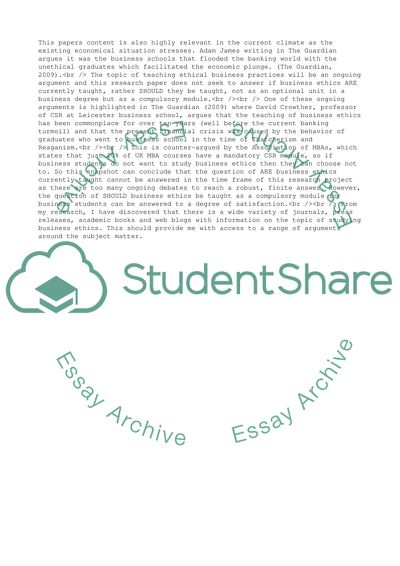Cite this document
(Is It Vital that Business Ethics Is Taught as a Compulsory Module in B Research Proposal, n.d.)
Is It Vital that Business Ethics Is Taught as a Compulsory Module in B Research Proposal. Retrieved from https://studentshare.org/business/1564349-business-ethics-in-business-education-elective-or-compulsory-module
Is It Vital that Business Ethics Is Taught as a Compulsory Module in B Research Proposal. Retrieved from https://studentshare.org/business/1564349-business-ethics-in-business-education-elective-or-compulsory-module
(Is It Vital That Business Ethics Is Taught As a Compulsory Module in B Research Proposal)
Is It Vital That Business Ethics Is Taught As a Compulsory Module in B Research Proposal. https://studentshare.org/business/1564349-business-ethics-in-business-education-elective-or-compulsory-module.
Is It Vital That Business Ethics Is Taught As a Compulsory Module in B Research Proposal. https://studentshare.org/business/1564349-business-ethics-in-business-education-elective-or-compulsory-module.
“Is It Vital That Business Ethics Is Taught As a Compulsory Module in B Research Proposal”, n.d. https://studentshare.org/business/1564349-business-ethics-in-business-education-elective-or-compulsory-module.


